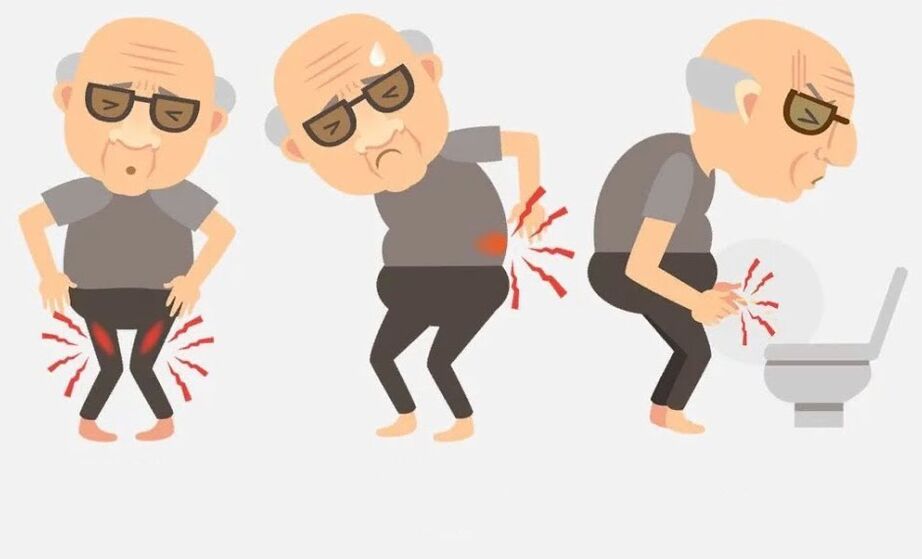All men are affected. Therefore, after identifying the first symptoms, it is important to consult a doctor for information on how to cure prostatitis.
Inflammation of the prostate does not only occur in people at risk. All men are affected. Therefore, after identifying the first symptoms, it is important to consult a doctor for information on how to cure prostatitis. A special center helps with correct diagnosis and competent treatment!
What is prostatitis
Prostatitis is a common pathology of the urogenital system in the stronger sex. Every fourth man consults a doctor with typical symptoms.
There are several categories of prostatitis:
- acute bacterial - the causative agent is predominantly Escherichia coli, rarely enterococci;
- bacterial chronic - continues with remissions and relapses, in addition to E. coli, viruses, trichomonas, chlamydia, fungi, mycoplasmas can provoke an inflammatory process;
- chronic pelvic pain syndrome - with this pathology, infections are not identified, the disease occurs with and without inflammation, among provocateurs: low physical activity, infrequent sex life, overheating / hypothermia;
- asymptomatic - progresses without characteristic signs, is diagnosed accidentally (most often based on a medical examination).
Only a urologist can determine the type of disease. After a thorough diagnosis, a treatment regimen is developed, which is carried out under the supervision of the attending physician.
Can prostatitis be cured? The answer is positive in cases where the pathology is in the initial stages of development. It is important to prevent the transition of the disease into a chronic form. It is even better to take timely preventive measures that prevent the inflammatory process of the prostate.
Symptoms of prostatitis
How do you know you have prostatitis? Attention should be paid to the smallest changes in the functioning of the urinary system. Common signs of pathology include:
- frequent urge to urinate, urination is difficult;
- a significant decrease in the amount of daily urine;
- pain during defecation that radiates to the groin;
- discharge from the urethra is observed after defecation;
- burning in the perineum and urethra;
- spontaneous nocturnal erection;
- rise in body temperature;
- weakening of the erection;
- excessive ejaculation during intercourse;
- emotionless feelings during orgasm.
The disease is accompanied by a different kind of pain. Where does prostatitis hurt:
- in the scrotum;
- in the perineum;
- at the base of the penis.
Reference! The acute form of the pathology is accompanied by frequent headaches.
Urination associated with prostatitis may be accompanied by periodic, painful sensations. The bladder does not empty completely. The stream is sluggish. The characteristic symptoms are often complemented by a decrease in work capacity, loss of appetite and rapid fatigue.
Reference! Blood with prostatitis contains specific prostate antigen. It is detected during the diagnostic examination of biological material.
Symptoms of the acute form differ from chronic diseases. In the second case, phases of remission alternate with relapse.

Causes of prostatitis
Doctors call the stagnation of blood in the pelvic organs the main reason for the development of pathology. This is most often caused by a sedentary lifestyle, being overweight, sedentary work and an unbalanced diet.
Other triggers include:
- hereditary predisposition;
- hypothermia;
- long-term urinary retention;
- dysfunction of the gastrointestinal tract;
- poor circulation in the arteries;
- irregular sex life;
- diseases of the urogenital system;
- infections;
- chronic foci are present in the body;
- frequent injuries of the perineum and the adjacent area;
- lack of adequate treatment of sexually transmitted diseases.
Reference! Alcohol abuse and frequent stress can also cause inflammation of the prostate, especially against the background of reduced immunity.
It is still not known what causes chronic pelvic pain syndrome (a type of prostatitis). It is believed that the disease develops against the background of damage caused by viruses of the herpetic group, mycoplasmas, chlamydia. Some scientists argue that the cause should be sought in autoimmune processes, constant hypothermia and low physical activity.
Treatment methods of prostatitis
Modern medicine with accumulated experience in the study of pathology provides comprehensive information on the treatment of prostatitis in men.
The therapeutic regimen is developed based on the diagnostic data. First of all, the focus of prostate inflammation is eliminated. In addition, sexual disorders and other disorders are corrected with the help of drugs.
The keys to successful treatment are:
- early diagnosis;
- a well-planned comprehensive therapy program;
- following the doctor's recommendations.
Reference! Depending on where the prostatitis hurts in men, with the help of differential diagnosis, serious diseases such as prostate adenoma, inguinal hernia, secondary cystitis and stones of the lower ureter are excluded.
Taking into account the form of pathology, the following methods are prescribed to treat the patient.
- Drug therapy - ensures the intake of immunomodulating agents, vitamins and minerals, antibiotics.
- Physiotherapy - mainly prescribed in combination with drugs. The methods are characterized by high efficiency: magnetic laser massage, shock wave therapy, ultrasound treatment.
- Surgical intervention - in the absence of positive dynamics, a decision is made about surgery after drug treatment.
When identifying the first signs of pathology, do not delay consulting a doctor, and even more so self-medication. This leads to an aggravation of the problem, with serious consequences that require a radical solution. It is better to make an appointment with a urologist immediately.
Doctors' opinions about the disease can be traced back to the fact that prostatitis can be cured if the treatment of prostatitis in men is started immediately after the first signs are noticed. Treatment of the chronic form requires an integrated approach. At the same time, relapses are not excluded even after a long remission.






























